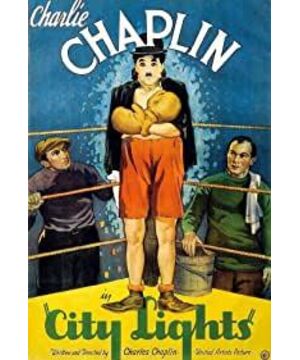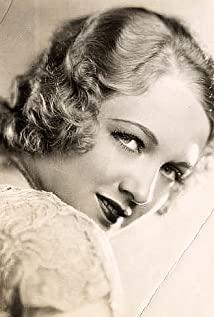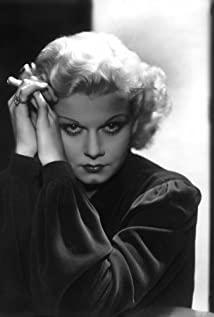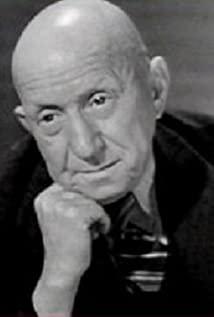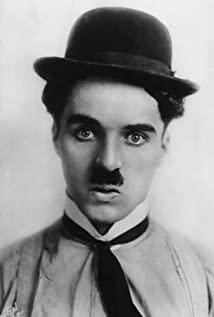Throwing away the label of Chaplin and the limitations of time and space, this is the first time to watch a silent film in its entirety. This review is written as a virgin and from a perspective unaffected by anything else. If you accidentally offend some sentimental people in your words, then hit me.
Shooting in the form of comedy is difficult in many ways. In the words of comedian Huang Baiming, such subjects are difficult to act first, then difficult to film, and finally difficult to win awards. Because the difference between comedy and drama is that he will not let you directly feel the pain and entanglement from the characters on the screen. The directors play down the feeling with a playful approach, keeping your viewing experience light-hearted all the time. Of course this is just a conventional way of distinguishing, and there are perverts like "black comedy" in comedy. The sub-categories of comedy can be divided into "spoof comedy", "satirical comedy", "situation comedy", "absurd comedy" and so on.
But on this work alone, I don't think it's a comedy in the strict sense.
The reason is simple - not funny. The most basic and only criterion for judging the success of a comedy is whether it is funny or not. All other reviews beyond that are nonsense. A comedy that is not funny cannot be called a comedy.
Therefore, although I tried my best to integrate into the comedy atmosphere on the screen throughout the film, except for the scene in the middle of the boxing ring where I laughed heartily, I couldn't find any other laughs. If it is a comedy, then the rating that can be given is unqualified.
So I went back and had to revisit the film. I cautioned myself not to be intimidated by titles like "The Master of Comedy Chaplin," thinking that every piece of his work should be viewed with a comedic eye. Not really, at least for this movie I can't quite categorize it in any branch of comedy. Because its main theme is not about jokes and criticism, funny and ironic, but about the eternal theme of human beings - love.
The form of comedy is just its coat, it wraps up its core in a comedy-like way, and uses it to express its part about love sideways. So, "City Lights" is not a comedy, but a romance.
So, when I changed a sense of substitution and looked at the movie again, my inner feelings could fall precisely on the rhythm of every scene of the movie, and my eyes could not help but rain.
The story is about a homeless man who meets a blind flower girl on the street. Under a beautiful misunderstanding, the flower girl thinks the homeless person is a gentleman and aristocrat.
In order to protect his noble image in the heart of the flower girl, the homeless show off himself with a swollen face and a fat man. First, he bought all the flowers in the flower girl's basket, drove someone else's car to send the flower girl home, and let the flower girl tear off all her sweaters without revealing it (probably because the rich don't wear them). sweater), then worked hard, fought boxing, paid high rent for the flower girl, and left a sum of money for eye disease treatment, but the money was not his own, and the homeless was misunderstood by the police and put in jail. .
Two years later, when the homeless came out of prison in a tattered dress, the first thought in his mind was to go to the street where he first met the flower girl, and meet the flower girl.
After so many years apart, when they met again, the homeless man was even worse than before, with greasy hair, broken clothes, funny and sloppy behavior, and bullying by the children who sold newspapers.
At this time, the flower girl regained its light and opened a flower shop. The flower girl who recognized the homeless man at the intersection of the street held his hand tightly, and the two interlocked their fingers. The flower girl held the homeless hand tightly. Stick it on your chest.
The story ended with the smirk of the homeless man.
I paused and watched the last scene of the story over and over again, trying to read the off-screen character information from the expression of the actress who played the flower girl, but I couldn't find anything tricky. She acted really well, she interprets the sincerity, kindness, and vulgarity of the flower-seller's nature to the extreme.
But I'm not content with that, because it goes against my perception of human nature. Žižek, who psychoanalyzed this scene in "The Perverted Film Guide", said that usually, when we fall in love with someone, we don't accept him/her for who he or she is. Instead, put him/her into our fantasy. We got him/her wrong, so when we found out that it was wrong, love quickly turned to violence. There is nothing more dangerous and deadly than being loved by the other person as someone he/she is not, just to conform to the ideal (fantasy). (So) in this case, love is always inhibiting love.
Therefore, I tried to break through this open ending disguised as a big reunion over and over again, but after a long time, I still didn't do it.
How I want to say venomously to the people on the screen: Wake up, homeless, no matter if you are poor pretending to be rich or rich to be poor, it is essentially a deception, as long as it is deception, it is impossible to gain love! Or, only a good-looking person, a hero saves the beauty, the beauty will say: the concubine can only be promised by the body; if you have no advantage, even if you become a hero and save the beauty once, the beauty will only say: Such a great favor can only be repaid in the next life. The flower girl has regained its light, and should embrace a new life. Why should she be planted in the hands of you, a sloppy ronin in the market, just because you have helped others, should she entrust her her whole life to you? The flower girl is a light to the homeless, but the homeless is a shadow to the flower girl. From ancient times to the present, the truth is that the right household is the truth. How can toads eat swan meat, and so on.
So the first time I watched "City Lights", I wanted to say that this is just the lust of men. At least if there really exists such an extraordinary flower girl in the world, I would rather she only live on the screen , and never step into this real world. But then I thought about it over and over again, and felt that although the flower girl in the film was unreasonable, it was undeniably possible. After all, although "City Lights" belongs to the drama, it also contains the attributes of comedy, that is, it is far from the real pain in real life.
Finally, tell me about other associations you have with the film. "City Lights" deserves five stars. The film's portrayal of the character of the flower girl is so perfect that it creates a sense of distance. She is too crystal clear, like a pure angel, without the influence of worldly concepts, but living in the world.
As Anton Chekov said, everything I have learned about human nature has been learned from myself . The reason why I feel unreal comes entirely from my inability to experience the purity of my heart, so after watching the movie, my eyes were red several times, not because I was moved to tears by the epic love, but because I lost that experience sincerity ability and sadness. If time were to go back five years, I would definitely not have too much doubt when looking at this ending, because this is love, regardless of class and appearance. But back in time, I can only say numbly, this may be love, but this is definitely not life. I'm amazed that I can say something like this, having watched a contemporary stinky young man castrate himself over the years into a machine that can only do precise calculations and no longer believes in anything about idealism.
This movie awakened the last tenderness in my heart, even though I knew it was perfect like a love fairy tale, I would rather leave a place in my heart for it, a place that should belong to it.
Finally, this review ends with a scene in the middle of the film:
Blind flower girl sits at home talking to grandma about 'homeless'
(The flower girl sits next to her grandmother, like a little girl, drinking tea while chatting happily. A passage is inserted on the screen.)
... and then he brought me home in his car
"...then he drove me home"
(Grandma is sitting at the table, knife in hand cutting bread. Screen insert.)
He must be wealthy
"He must be rich"
(The flower girl nods, pauses for thought, then smiles back on her face. A passage is inserted on the screen.)
Yes, but he`s more than that
"Yes, but he has something more rare than wealth"
View more about City Lights reviews


